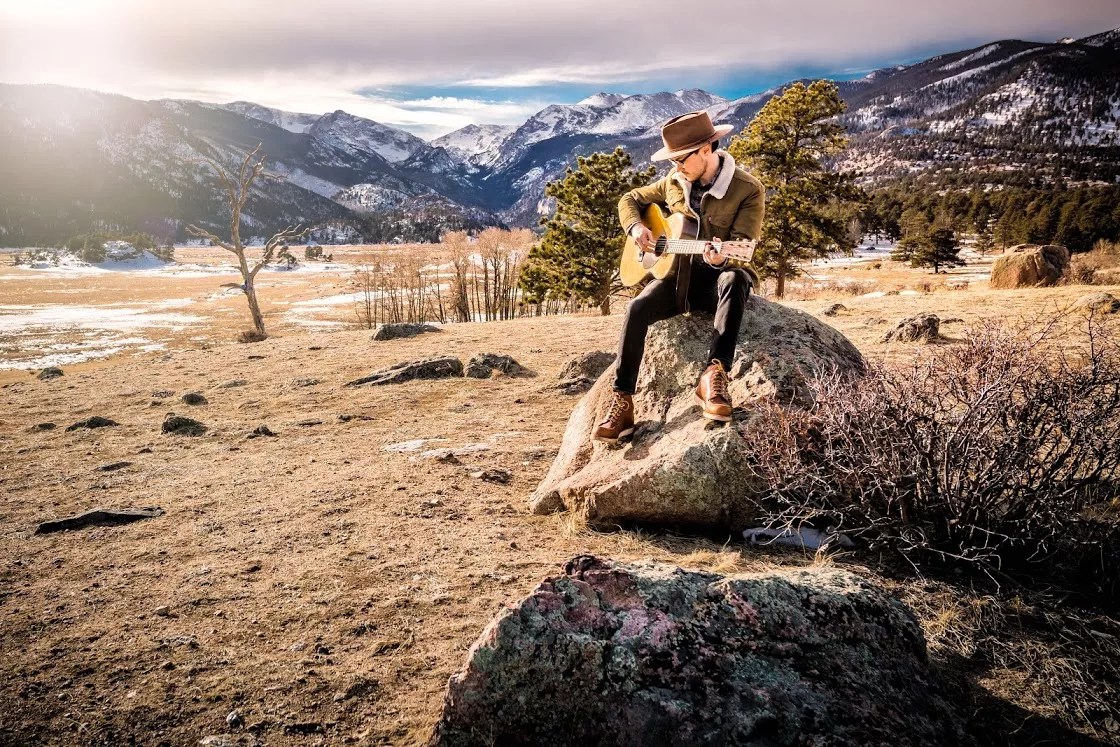
Molly McCormick

Audio By Carbonatix
Jacy James Anderson used the lyrics of his debut album, Blackout Poetry, to flip off the anxiety that has plagued his life.
“The record is very much about vulnerability and about being open with the things that we all go through as individuals with the human condition,” the indie-folk singer says. “For me, that’s anxiety and panic disorder.”
He likens anxiety to a rabbit and a wolf, and the wolf wants to eat the rabbit. The rabbit is going to go into fight-or-flight mode to run away and hopefully not become a wolf snack. When people were evolving, they had that same response to danger.
“The problem now is we’ve gotten to the point where our brains fabricate things to be scared of and trigger that fight-or-flight response,” he says. “For me, there was a time where it was really bad. I could be walking my dog, and I thought people were following me and having dark thoughts, and my brain got carried away, and I started freaking out.”
The overarching theme of Blackout Poetry is the struggle against anxiety, and Anderson – who suffers from panic attacks – explicitly addresses them on the track “The Wave of Panic.”
“I read about panic attacks, that it’s important to write yourself something ahead of time, like on a notecard,” he says. “You can read it when you are experiencing it. It will tell you that you’ve been through this before. You aren’t having a heart attack. You aren’t alone. You’re going to get through this. For me, music is my notecard.”
Anderson also tackles subjects like hurtful relationships on “What Are You Waiting For?” and gun violence on “Hollow,” both of which tie, to varying degrees, into the main theme. The title Blackout Poetry – inspired by the practice of taking a textbook or other printed media and blacking out words with a marker to create new text – is also a nod to Anderson’s struggle with anxiety.
“I felt myself putting myself down, or this immense amount of self-doubt,” Anderson says. “That felt like it was blacking out parts of my personality that I didn’t like or that weren’t good enough to be a musician or an independent artist. To me, the title represents the overcoming of that.”
Anderson grew up in Hawaii but is originally from Fort Collins, so it was a homecoming of sorts when he spent the last year recording the album at the latter’s Blasting Room. He draws from a variety of artists, and some of Blackout Poetry, particularly the Western influence, takes inspiration from Los Angeles indie-folk band Lord Huron. Anderson has always been drawn to lyrically gifted songwriters such as Leonard Cohen and Gregory Alan Isakov.
“Overall, I wanted it to be a folky album with a bit of electronic influence,” he says. “To me, every song, how we produced it in the studio, was built around the lyrics and the message I was trying to convey in that song.”
He wanted the record to have a thematic arc as well as a concrete sense of an A side and a B side, because he’s planning on a vinyl release, as well. The title track, which ends the A side, represents a low point in his struggle against anxiety; the second half of the record deals with coming back from it.
“I definitely thought about that arc,” he says. “It’s not a collection of singles. It’s a record.”
Anderson is currently living in Denver and gigging around town. Blackout Poetry has instrumental backing, but he’s been performing solo of late. He says people who come to see him play can expect a lot of vulnerability and honesty.
“I’m big on trying to de-stigmatize anxiety and mental health,” he says. “When you come to my show and see me play, I’m going to try to be really real with the audience and talk about things I’ve gone through.”
The album is mixed, mastered and ready for release. Anderson hopes to drop four singles over the next several weeks, then the album and, eventually, the vinyl version. He spent about $30,000 to record Blackout Poetry, some of which he was able to recoup through a Kickstarter project. He says he would have made it whether the Kickstarter had been successful or not.
“After going through so much anxiety and self-doubt, I felt like I owed it to myself,” he explains. “It might help me; it might hurt me. But at the end of the day, to tell my anxiety to eff off, I needed to make an album and put it out.”
Anderson is the featured performer at Originals Only Open Mic at Burns Family Artisan Ales, 2505 West Second Avenue, at 7:30 p.m. on Thursday, February 27. The show is free.